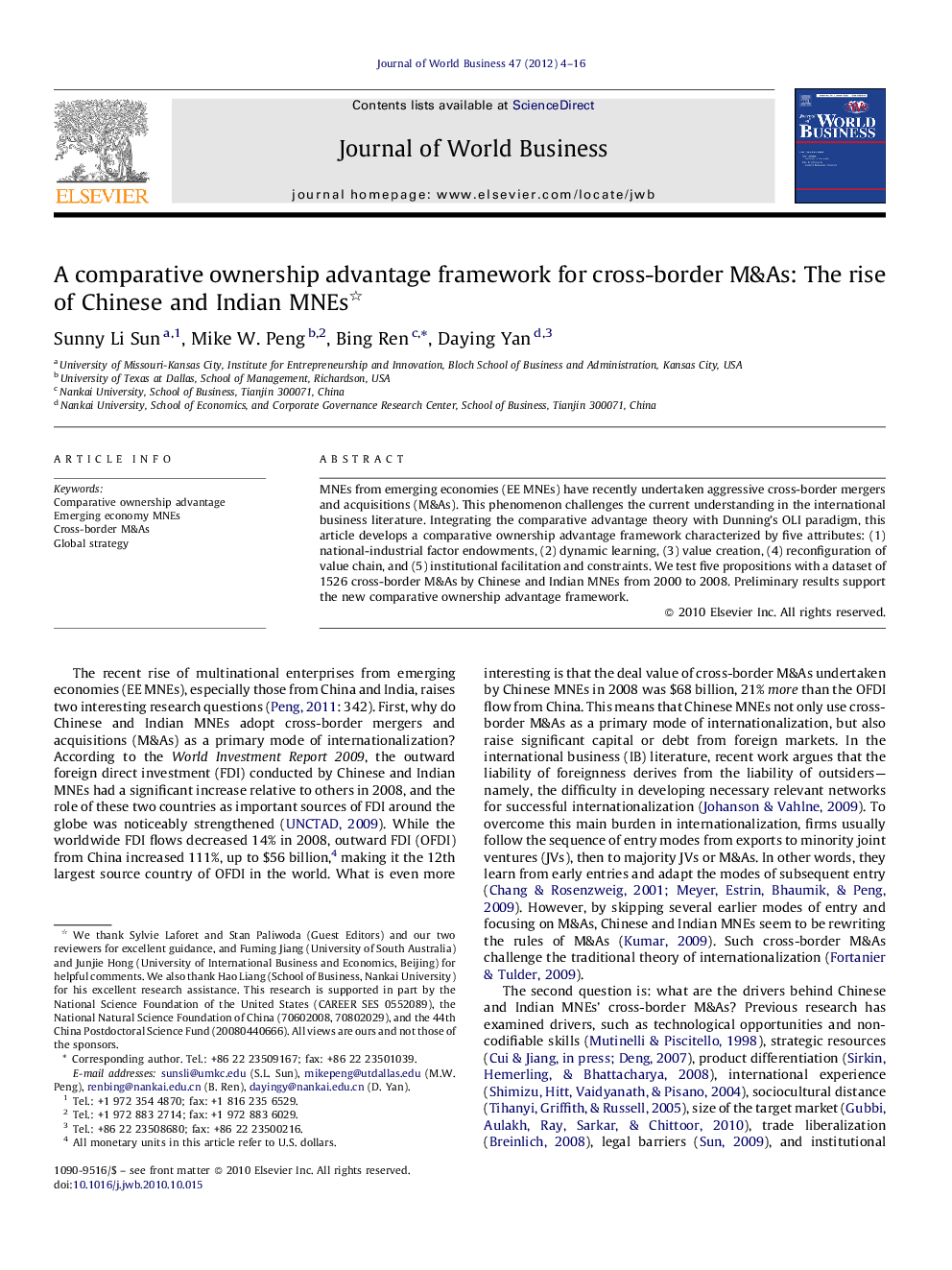| Article ID | Journal | Published Year | Pages | File Type |
|---|---|---|---|---|
| 1002205 | Journal of World Business | 2012 | 13 Pages |
MNEs from emerging economies (EE MNEs) have recently undertaken aggressive cross-border mergers and acquisitions (M&As). This phenomenon challenges the current understanding in the international business literature. Integrating the comparative advantage theory with Dunning's OLI paradigm, this article develops a comparative ownership advantage framework characterized by five attributes: (1) national-industrial factor endowments, (2) dynamic learning, (3) value creation, (4) reconfiguration of value chain, and (5) institutional facilitation and constraints. We test five propositions with a dataset of 1526 cross-border M&As by Chinese and Indian MNEs from 2000 to 2008. Preliminary results support the new comparative ownership advantage framework.
